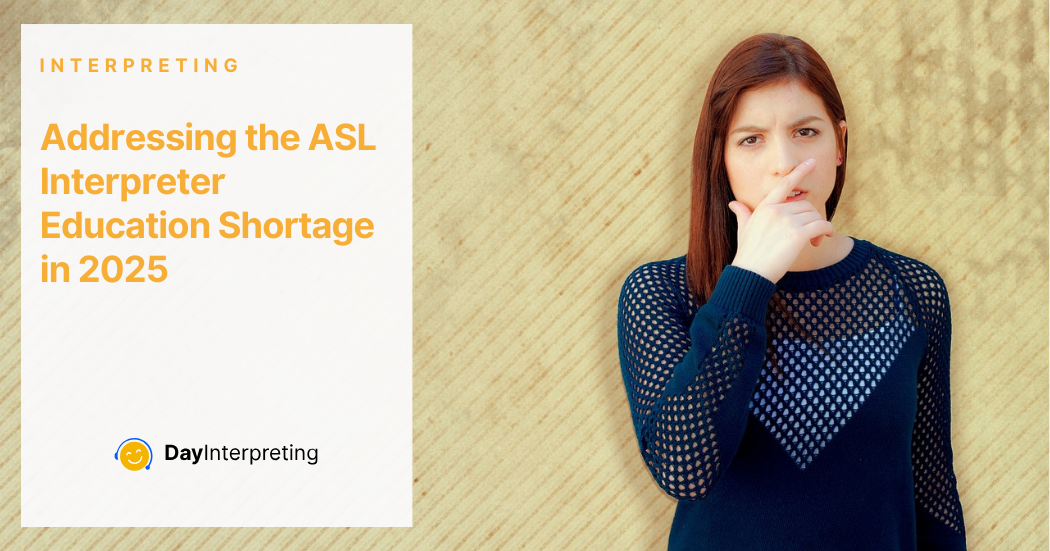Across the United States, the profession of American Sign Language (ASL) interpreting is facing a critical challenge, a significant shortage of qualified interpreters. As of now, there are 125 active ASL interpreter education programs in colleges and universities, but only 18 of these are accredited, a mere 14% of the total.
This gap not only constrains access for Deaf communities in educational, legal, and healthcare contexts, but also strains the existing interpreter workforce. To build a sustainable future for ASL interpreting, we need solutions at every level, from colleges to professional associations.
Why ASL Interpreter Education Pipelines Are So Weak
- Limited Educational Infrastructure
Accredited ASL interpreting programs are geographically sparse, leaving many regions without nearby training. - Underrepresentation in Higher Ed
Interpreter training remains largely housed in institutions that serve privileged populations, with minimal presence at HBCUs, Hispanic-Serving Institutions, Tribal Colleges, or rural campuses. - Few Graduation-to-Work Pathways
Many graduates don’t seamlessly transition into interpreting roles. Without strong practicum, mentorship, and hiring pipelines, talent often drifts away from the field.
Proven Strategies for Expanding the ASL Interpreter Pipeline
1. Launch Paid Practicum Partnerships
A successful initiative brought together Sorenson Communications, Purple Communications, Amazon, and Microsoft to offer paid practicum placements for 50 new graduates. These placements helped them enter the workforce with experience and support, forging a repeatable model.
2. Grow Training Programs at Under-Served Institutions
Creating interpreter training programs at HBCUs, Tribal Colleges, and other underrepresented schools can widen the talent pool and improve cultural competency in interpreting.
3. Create Alternative Career Pathways
Graduates who don’t become interpreters immediately can still play essential roles in the language services ecosystem, as project coordinators, schedulers, or localization specialists, keeping them connected and valuable.
What This Means for Interpreters and Educators
If you’re actively involved in the interpreting field, here’s how you can make a difference:
- Partner with local universities to advocate for or help build interpreter training programs.
- Invite experienced interpreters, including Deaf mentors, into classrooms, bringing practical insights to students.
- Promote paid practicum models among corporate partners or nonprofits who use ASL interpreters.
- Champion diversity by encouraging underrepresented populations to explore interpreting as a meaningful career.
Why ASL Interpreter Education Matters in 2025
ASL interpreters are essential in education, healthcare, law, and civic life. Without a steady pipeline, Deaf individuals risk being excluded from vital services due to lack of qualified access.
Moreover, trusted interpreters don’t just relay words, they build trust, cultural understanding, and inclusion.
By strengthening education, collaboration, and diversity in interpreter training, we ensure that interpreting remains more than a profession; it becomes a force for equity.





0 Comments